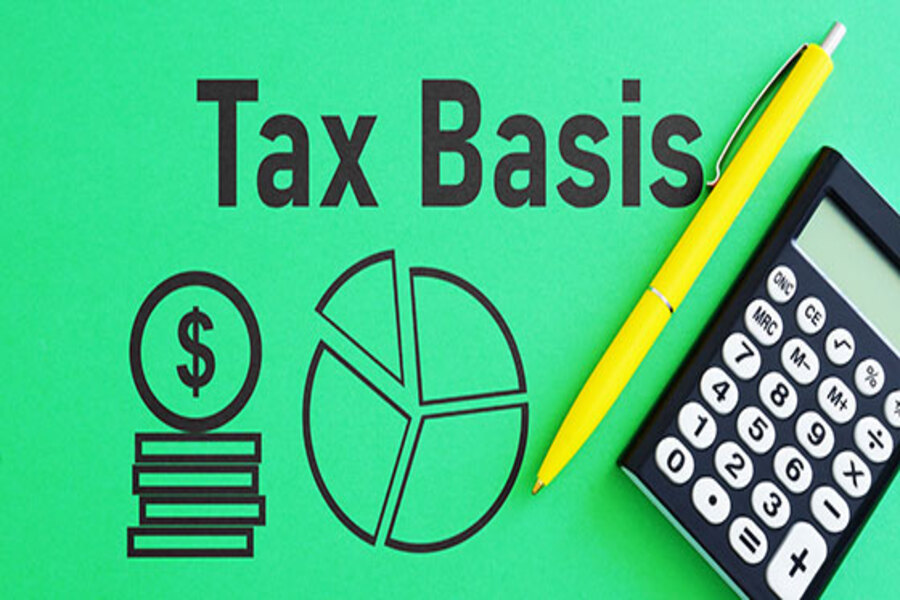If you’ve successfully filed your 2022 tax return with the IRS, you may think you’re done with taxes for another year. But some questions may still crop up about the return. Here are brief answers to three questions that we’re frequently asked at this time of year. When will your refund arrive? The IRS has an online tool that can tell you the status of your refund. Go to irs.gov and click on “Get Your Refund Status.” You’ll need your Social Security number, filing status and the exact refund amount. Which tax records can you throw away now? At a minimum, keep tax records related to your return for as long as the IRS can audit your return or assess additional taxes. In general, the statute of limitations is...

If you itemize deductions on your tax return, you may wonder: What medical expenses can I include? The IRS recently issued some frequently asked questions addressing when certain costs are qualified medical expenses for federal income tax purposes. Basic rules and IRS clarifications You can claim an itemized deduction for qualified medical expenses that exceed 7.5% of your adjusted gross income. You can also take tax-free health savings account (HSA), health care flexible spending account (FSA) or health reimbursement account (HRA) withdrawals to cover qualified medical expenses. However, qualified medical expenses don’t include those for things that are merely beneficial to your general health. The answers to the IRS FAQs clarify the following points, starting with the ones we think are most interesting. As a general rule, the...
If you’re a crypto investor or user, you may have noticed something new on your tax return this year. And you may soon notice a new form reporting requirements for digital assets. Check the box Beginning with tax year 2022, taxpayers must check a box on their tax returns indicating whether they received digital assets as a reward, award or payment for property or services or whether they disposed of any digital assets that were held as capital assets through sales, exchanges or transfers. If the “yes” box is checked, taxpayers must report all income related to the digital asset transactions. New information form Under the broker information reporting rules, brokers must report transactions in securities to both the IRS and investors. Transactions are reported on Form 1099-B. Legislation...
A common question for people planning their estates or inheriting property is: For tax purposes, what’s the “cost” (or “basis”) an individual gets in property that he or she inherits from another? This is an important area and is too often overlooked when families start to put their affairs in order. Under the fair market value basis rules (also known as the “step-up and step-down” rules), an heir receives a basis in inherited property that’s equal to its date-of-death value. So, for example, if your grandfather bought shares in an oil stock in 1940 for $500 and it was worth $5 million at his death, the basis would be stepped up to $5 million for your grandfather’s heirs. That means all of that gain escapes income taxation forever! The...
Once you file your 2022 tax return, you may wonder what personal tax papers you can throw away and how long you should retain certain records. You may have to produce those records if the IRS audits your return or seeks to assess tax. It’s a good idea to keep the actual returns indefinitely. But what about supporting records such as receipts and canceled checks? In general, except in cases of fraud or substantial understatement of income, the IRS can only assess tax within three years after the return for that year was filed (or three years after the return was due). For example, if you filed your 2019 tax return by its original due date of April 15, 2020, the IRS has until April 15,...
If you’re an art collector, you may wonder about the tax breaks available for donating a work of art to charity. Several different tax rules may come into play in connection with such contributions. Basic rules Your deduction for a charitable contribution of art is subject to be reduced if the charity’s use of it is unrelated to the purpose or function that’s the basis for its qualification as a tax-exempt organization. The reduction equals the amount of capital gain you would have realized had you sold the property instead of giving it to charity. Example: You bought a painting five years ago for $10,000 and now it’s worth $20,000. You contribute it to a hospital. Your deduction is limited to $10,000 because the hospital’s use of the...
When preparing your tax return, we’ll check one of the following statuses: Single, married filing jointly, married filing separately, head of household or qualifying widow(er). Filing a return as a head of household is more favorable than filing as a single taxpayer. For example, the 2023 standard deduction for a single taxpayer is $13,850 while it’s $20,800 for a head of household taxpayer. To be eligible, you must maintain a household, which for more than half the year, is the principal home of a “qualifying child” or other relative of yours whom you can claim as a dependent. Basic rules Who is a qualifying child? This is a child who: Lives in your home for more than half the year, Is your child, stepchild, adopted child, foster child,...
Did you make large gifts to your children, grandchildren or other heirs last year? If so, it’s important to determine whether you’re required to file a 2022 gift tax return. And in some cases, even if it’s not required to file one, you may want to do so anyway. Filing requirements The annual gift tax exclusion has increased in 2023 to $17,000 but was $16,000 for 2022. Generally, you must file a gift tax return for 2022 if, during the tax year, you made gifts: That exceeded the $16,000-per-recipient gift tax annual exclusion for 2022 (other than to your U.S. citizen spouse), That you wish to split with your spouse to take advantage of your combined $32,000 annual exclusion for 2022, That exceeded the $164,000 annual exclusion...
Have you bought stock in a company that later dropped in value? While you may prefer to forget such an ill-fated investment, at least you can claim a capital loss deduction on your tax return. Here are the rules that apply when a stock you own is sold at a loss or becomes completely worthless. Stock sales produce capital losses Stocks are capital assets and produce capital gains or losses when they’re sold. Your capital gains and losses for the year must be netted against one another in a specific order, based on whether they’re short-term (held one year or less) or long-term (held for more than one year). If, after netting, you have short-term or long-term losses (or both), you can use them to offset up to...
You generally must pay federal tax on all income you receive but there are some exceptions when you can exclude it. For example, compensatory awards and judgments for “personal physical injuries or physical sickness” are free from federal income tax under the tax code. This includes amounts received in a lawsuit or a settlement and in a lump sum or in installments. But as taxpayers in two U.S. Tax Court cases learned, not all awards are tax-free. For example, punitive damages and awards for unlawful discrimination or harassment are taxable. And the tax code states that “emotional distress shall not be treated as a physical injury or physical sickness.” Here are the facts of the two cases. Case #1: Payment was for personal injuries, not physical injuries A taxpayer...











